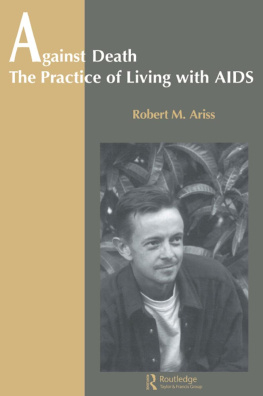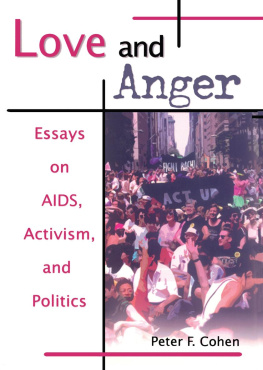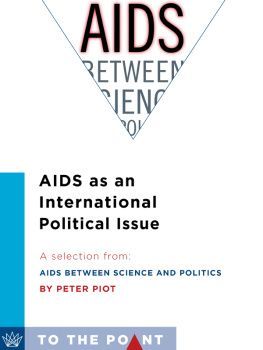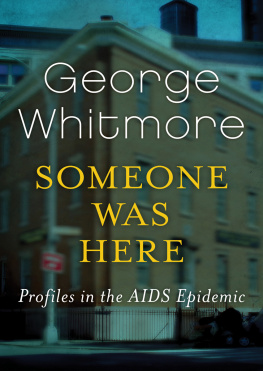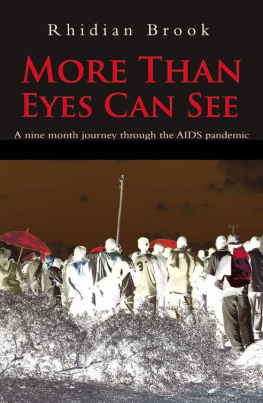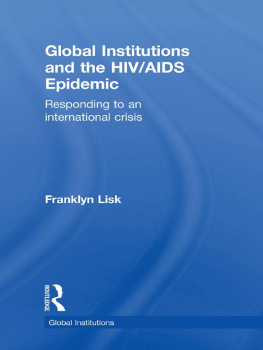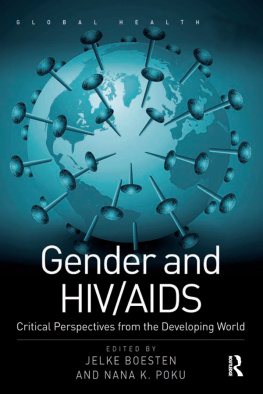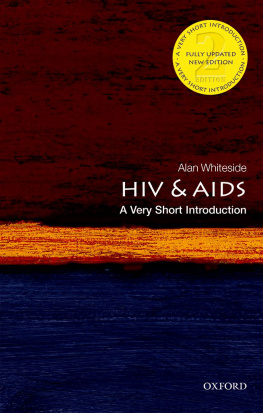Against Death
THEORY AND PRACTICE IN MEDICAL ANTHROPOLOGY AND INTERNATIONAL HEALTH
A series edited by
Susan M. DiGiacomo
University of Massachusetts, Amherst
Editorial Board
H. Kris Heggenhougen
Harvard University
Cambridge, Massachusetts
Daniel E. Moerman
University of Michigan, Dearborn
R. Brooke Thomas
University of Massachusetts, Amherst
International Advisory Board
Joan Ablon, George Armelagos, Hans Baer, Peter Brown, Xchitl Castaneda, Deborah Gordon, Xchitl Herrera, Thavitong Hongvivatana, Judith Justice, Montasser Kamal, Charles Leslie, Shirley Lindenbaum, Margaret Lock, Setha Low, Harriet Ngubane, Mark Nichter, Duncan Pedersen, Tom Ots, Nancy Scheper-Hughes, Merrill Singer
Founding Editor
Libbet Crandon-Malamub
Volume 1
Hippocrates Latin American Legacy:
Humoral Medicine in the New World
George M. Foster
Volume 2
Forbidden Narratives:
Critical Autobiography as Social Science
Kathryn Church
Volume 3
Anthropology and International Health:
Asian Case Studies
Mark Nichter and Mimi Nichter
Volume 4
The Anthropology of Infectious Disease:
International Health Perspectives
Edited by Marcia C. Inhorn and Peter J. Brown
Volume 5
Against Death:
The Practice of Living with AIDS
Robert M. Ariss
This book is part of a series. The publisher will accept continuation orders which may be cancelled at any time and which provide for automatic billing and shipping of each title in the series upon publication. Please write for details.
Against Death
The Practice of Living with AIDS
Robert M. Ariss
Macquarie University
Sydney, Australia
with Gary W. Dowsett
Copyright 1997 OPA (Overseas Publishers Association) Amsterdam
B.V. Published in The Netherlands
Published by Routledge
2 Park Square, Milton Park, Abingdon, Oxon, OX14 4RN
270 Madison Ave, New York NY 10016
Transferred to Digital Printing 2007
All rights reserved.
No part of this book may be reproduced or utilized in any form or by any means, electronic or mechanical, including photocopying and recording, or by any information storage or retrieval system, without permission in writing from the publisher.
Parts of an early version of chapter 11 originally appeared under a different title in The Australian Journal of Anthropology (TAJA), vol. 4(1) (1993), and are reprinted here with permission.
Cover photo by Yair Metargem
British Library Cataloguing in Publication Data
Ariss, Robert M.
Against death : the practice of living with AIDS. (Theory and practice in medical anthropology and international health ; v. 5)
1. AIDS (Disease) Patients Australia 2. AIDS (Disease) Treatment Australia
I. Title II. Dowsett, Gary
362.196979200994
ISBN 9056995642
Publishers Note
The publisher has gone to great lengths to ensure the quality of this reprint but points out that some imperfections in the original may be apparent
And death shall have no dominion
Dead men naked they shall be one
With the man in the wind and the west moon;
When their bones are picked clean and the clean bones gone,
They shall have stars at elbow and foot;
Though they go mad they shall be sane,
Though they sink through the sea they shall rise again;
Though lovers be lost love shall not;
And death shall have no dominion.
Dylan Thomas
CONTENTS
Theory and Practice in Medical Anthropology and International Health seeks to promote works of direct relevance to anthropologically informed international health issues, practice, and policy. It aims to bridge medical anthropology both biological and cultural with international public health, social medicine, and sociomedical sciences. The series theoretical scope is intentionally flexible, incorporating the most current advances in social science theory, while its topical breadth ranges from specific issues to contemporary debates to practical applications informed by current anthropological theory. The distinguishing characteristic of this new series is its emphasis on cultural aspects of medicine and their links to larger social contexts and concrete applicability of the anthropological endeavor.
Dr. Robert M. Ariss died on May 9, 1994 from an AIDS-related condition. He was thirty-two years old. He had all but completed the final draft of this book, based on his doctoral dissertation, and on the morning of his death had decided on a new working title, Playing Patients: The Practice of Living with HIV in Sydney, Australia. The considerable irony of that title was not lost on those friends with Robert when he died; nor was it a choice unexpected by his colleagues at Macquarie University in Sydney, who had watched, helplessly, Roberts deteriorating health over the previous six months. Unfortunately, Roberts careful pun Patients/Patience loses something in offering his book to an international readership, which perhaps better knows the cardgame Patience (as it is called in Australia) as Solitaire. Thus, the present title.
In of this book, Robert writes of the death of another activist, Terry Bell, in circumstances uncannily prophetic of his own:
His death shocked many who were unaware of the severity of his illness toward the end of that year. Terry was working on a draft of a treatment information news-sheet in bed on the day of his death. Terry Bell worked relentlessly to the last day to improve the predicament of people with AIDS.
Roberts fight with HIV infection was valiant and exemplary. And this book represents and documents much of that fight. But this is not a biography; nor is it a documentary of the struggle by People Living With HIV and AIDS (PLWHA). Rather, as an anthropologist, Robert Ariss was the ultimate participant-observer of a cultural and political phenomenon that he, in fact, helped create. His eye, always critical, scanned the sexual and social lives of his community, namely the Sydney gay community. In his activism, Robert was among the central few who created PLWHA culture and politics in Sydney and in Australia. Yet, he was keenly aware of the pitfalls of activism, the experiences that sharpen perception, the passions that cloud judgment, the courage of collective struggle.
This book is a critical work, engaging experience through the rigorous deployment of social theory. As such, it provides a significant analysis of a central period in Australias experience of the HIV pandemic. As this country moves into a new phase, marked by the development of its third national HIV/AIDS strategy that aims to guide Australia through to the year 2000, Robert Arisss book is a provocative reflection on the previous decade. His keen, analytical observations will be important in the time ahead, and those of us who mourn his passing will, through this book, have him with us always.
A number of people, Roberts friends and colleagues, worked to ensure that this book was completed, with the full support of Roberts family. I would like to acknowledge the assistance of the National Centre for HIV Social Research, Macquarie University, especially its director, associate professor Susan Kippax, and the contributions of Jo Elliot and Chris Lyttleton. And many thanks to Graeme Skinner, who undertook the copyediting of Roberts text for publication.

